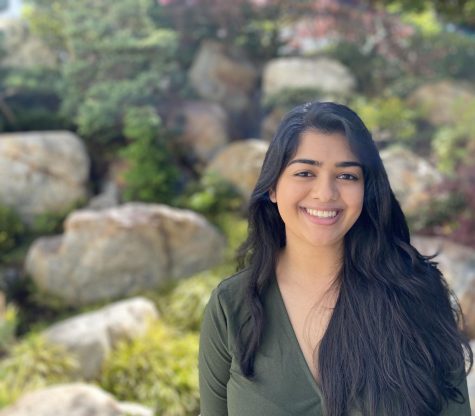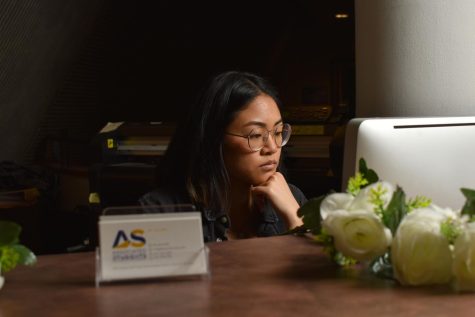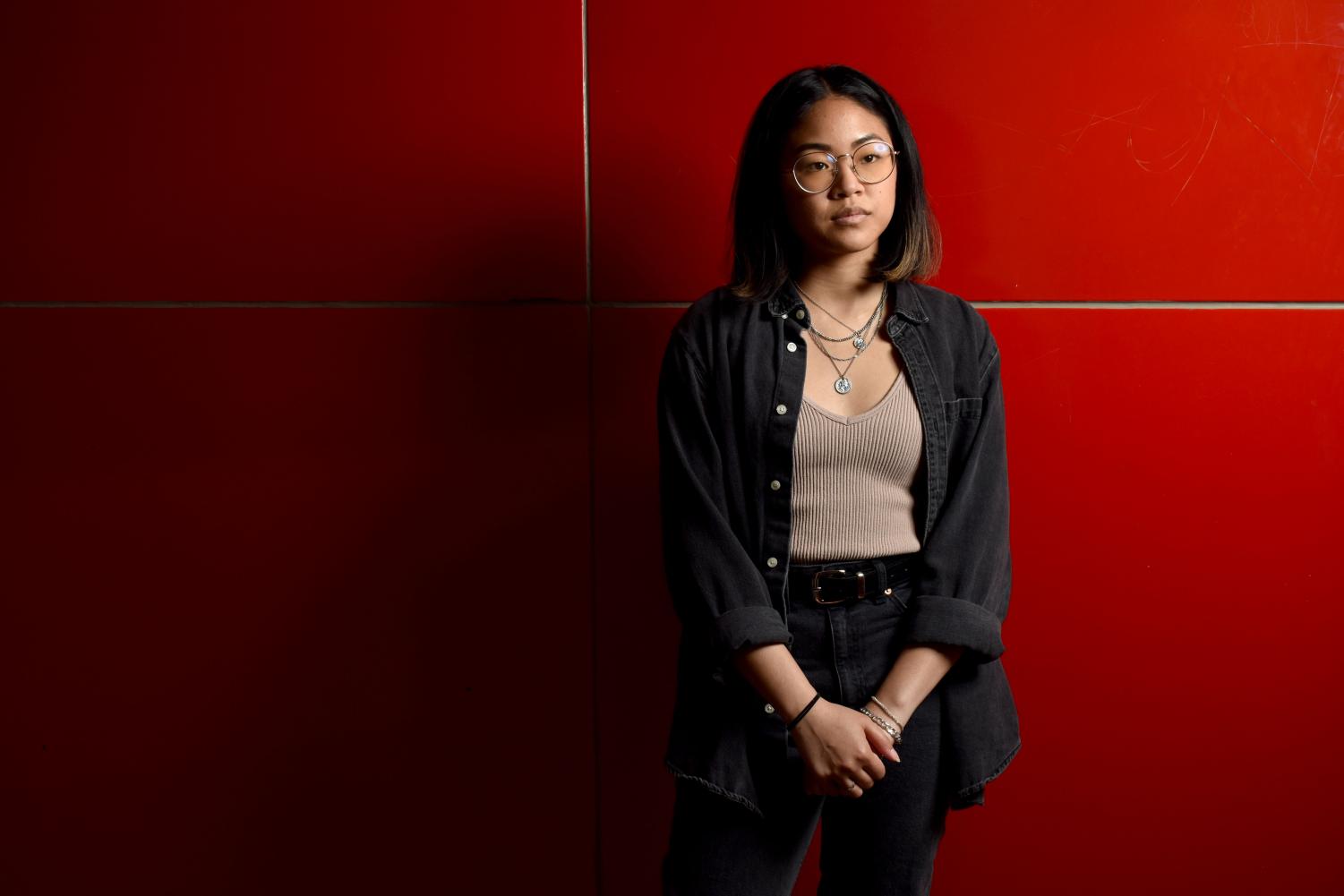
Kyleah Geonzon uses art and culture to redefine her culture
SF State was quiet on the last day of Lunar New year despite Kyleah Geonzon’s lantern event
Mar 2, 2022
Thick, colorful paper lay meticulously on a table in the Art Gallery. Music played out of a speaker placed right next to the front desk.
Art Gallery assistant for Associated Students Kyleah Geonzon prepared a short speech on the significance of the Chinese lantern festival. A notebook with words of how the festival represents letting go of the past and accepting prosperity for the future sat ready for her on the Art Gallery’s front desk.
She had this event planned for a few months. The lantern event aimed to teach students how to make Chinese lanterns, a tradition that “essentially wraps up Lunar New Year festivities.”
No one showed up to the event on the evening of Feb. 15, but Geonzon did not let it deter her from connecting with her culture and sharing that knowledge with others.

“I was super fine with it, I didn’t feel super bad or upset about it,” she said. “People have their own schedules, but who’s to say that will happen again next time?”
She stated that some cultural events may not be of interest to some but different events may spark interest, which for her is encouraging.
For Geonzon –a 23-year-old transfer student with a major in Interior Design and a minor in Anthropology– art is a chance for her to connect with her culture.
“I feel like I don’t fall in line with the whole first-gen Asian American experience,” Geonzon said.
She feels that her upbringing was unique compared to other first-generation students, so now she wants to incorporate more of her own culture into her life and share that with others. Geonzon is a first generation Filipina-American and was raised in Orange County.
Both her parents immigrated from the Philippines from a young age, her mother at the age of 24 and her father at the age of 18.
They both struggled to assimilate into American culture, and it ultimately defined how they raised their children.
Geonzon realized that her mother never made her Filipino food for her school lunch.
Her parents were concerned about how she might be treated by her peers if she displayed her culture at school. They also didn’t teach Geonzon or her two siblings their native language of Tagalog either. Her mother worried that her children would “seem weird” and that it might interfere with what they were being taught in school.
“My parents would speak Tagalog to each other but not to me and my siblings, but just hearing the language is a big thing for me because it reminds me of my parents,” Geonzon said. “I am very fond of my childhood, so that is why I want to stay in touch with it and the culture.”
Geonzon noticed that her mother being an immigrant influenced the way she was raised.
“She would always say little side comments like ‘you got to stay firm,’ ‘you got to fight,’” Geonzon said.” I am assuming she means in the career sense she really had to fight her way to the top.”
She explained that she felt like her mother struggled to fully assimilate so she needed to stand firm and make a place for herself instead.
Geonzon describes her childhood as family oriented and Christian and she feels that the basic values of Christianity align with her values. Growing up, she was involved in her local church, would attend Vacation Bible School, her grandfather was a pastor and her parents met at a church.
However, she found herself starting to feel limited the older she got. She found it hard to grow in her community of Orange County, so she ventured to San Francisco where she started to realize that her family is what kept her in touch with her culture.
“I associate my culture with home, being close to my family,” Geonzon said. “I have been very homesick since moving here. Whenever I think of home, I think of culture, the Filipino food we eat at home, the family parties and the stereotypical karaoke.”
Geonzon wanted to create a space where she could not only learn about her culture, but where anyone interested could as well. Geozon said that learning about other cultures makes you more understanding and open-minded.
“You see the world in a different lens, and I feel that it’s so important for people to actively engage in. I want to be that source where people can attempt to see the world in different lenses. I just think it’s cool to offer those opportunities to people,” Geonzon said.
For Geonzon, staying connected to culture looks like keeping in touch with people who are in the same culture, eating Filipino food and learning more about the people and history of the Philippines.
She also started utilizing her free time to learn more about her culture.
“Whatever I consume, it either brings me closer to my culture or it makes me feel even more distant from it,” Geonzon said.
Being conscious of what she consumes is now a priority for Geonzon. Instead of scrolling through Tik Tok, she makes time to do research and consume diverse media. She plans to continue creating craft events that incorporate her culture and has a craft event in mind for December of this year at SF State.


